Oscar-Nominated Documentary Filmmaker Lourdes Portillo, Subject Of Academy Museum Retrospective, Says She’s Working On Her “Last Project”
- Oops!Something went wrong.Please try again later.
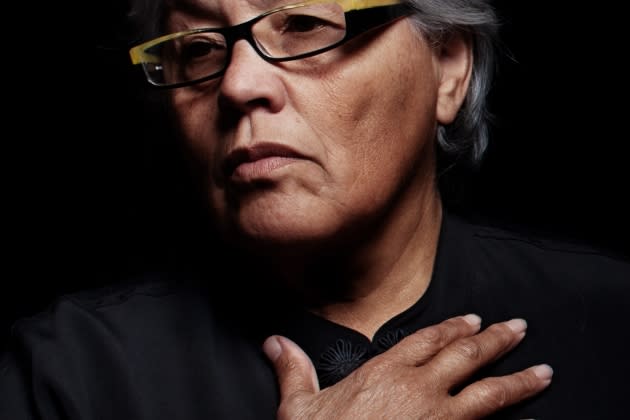
The Academy Museum of Motion Pictures wraps up its 10-day major retrospective of filmmaker Lourdes Portillo’s work later today, with a screening of her 2001 documentary Missing Young Woman (Señorita Extraviada).
For over four decades, the Mexican-born, Chicana-identified Portillo has crafted nuanced film and video works that center the emotions and circumstances of diverse Latinx experiences. Oscar-nominated for her documentary feature Las Madres – The Mothers of the Plaza de Mayo, “Portillo’s works defy categorization, slipping easily between docu-fiction, experimental video, and the melodrama of telenovelas,” as described by the Academy Museum’s interim director, film program, K.J. Relth-Miller. One of the few Chicana/o filmmakers of the 1970s still working today, Portillo, 79, has evolved her craft and expanded her interests to reinvent the form and ethos of activist filmmaking with her exceedingly independent approach to production and storytelling.
More from Deadline
Michael Cieply: Love At The Movies? It's Safer To Make A Horror Flick
Weird Thought: Will Some Academy Museum Members Someday Get An Oscar Vote?
In The Financial Details, New Reality And A Little Turmoil At The Film Academy
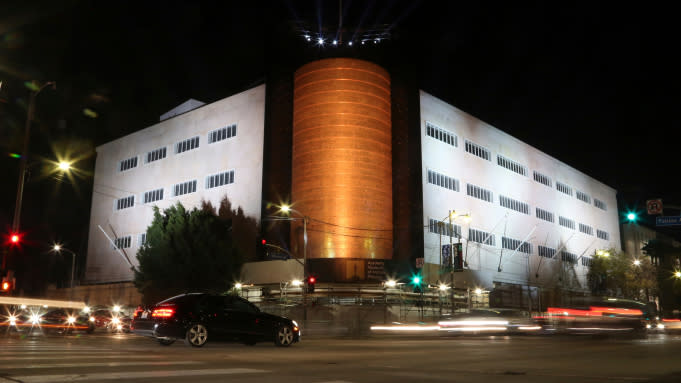
Portillo’s retrospective is part of the Academy Museum’s Limited Series and Spotlights and is the first screening series of her works by the Museum. Portillo’s films also feature as vignettes in the Academy Museum’s Significant Movies and Moviemakers gallery, part of the institution’s Stories of Cinema exhibition.
In an interview with Deadline, Portillo speaks about her journey as a filmmaker, her purpose, passions, and her current project, which she says will be her last.
DEADLINE: What does it mean for you to have a retrospective of your films at the Academy Museum of Motion Pictures?
Lourdes Portillo: Well, obviously it is a great honor, especially when they’ve [The Academy] just opened their museum. That is so significant for all the filmmakers that are independent filmmakers because it could be a venue to exhibit their work. The Academy is also very prestigious. So, I am honored.
DEADLINE: How would describe your overall experience with the Academy Museum during your screening series?
LP: The screening experience was very touching for me because documentary has always taken such a backseat to feature filmmaking, commercial filmmaking. It was a cinema [documentary filmmaking] that was accessible to me… and I could also say what I wanted to say because it wasn’t a big commercial enterprise. So, it was kind of momentous for me, and also very momentous to see all the people that came to see the films. Yes. That was very touching.
DEADLINE: Most of your work emphasizes social injustice, especially toward women. What triggered this in you, and was there any resistance when you wanted to reflect these stories on film?
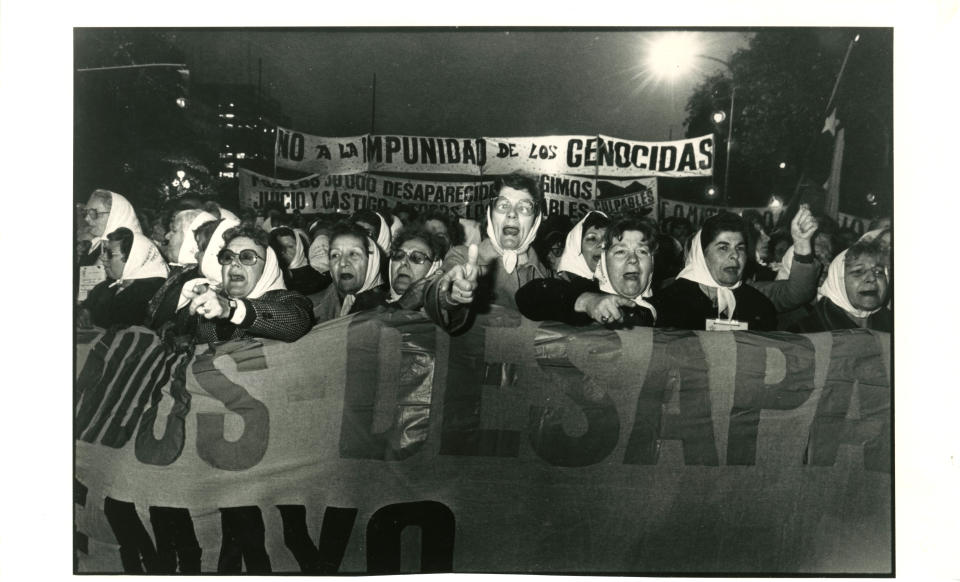
LP: I live in San Francisco, so there’s a certain activism that goes on here. And in those years – in the ‘70s – there were a lot of immigrants from Latin America, from Argentina, from Brazil, from Mexico, and there was a lot of injustice being perpetrated on them. And I, of course, tried to help in any way that I could. So, it all began in that form – a form of protest. And being in San Francisco, you’re kind of protected by the population here, at that time. And so [it] enabled me to go forward. And, also, I had the sensibility that I wanted to help people and I wanted to do it in a very artistic way, in a way that was really easier to understand and more sympathetic visually, shall I say.
DEADLINE: Besides documentary films, you have also made scripted narrative, docu-fiction, and experimental films. How challenging is it to work between these forms of storytelling?
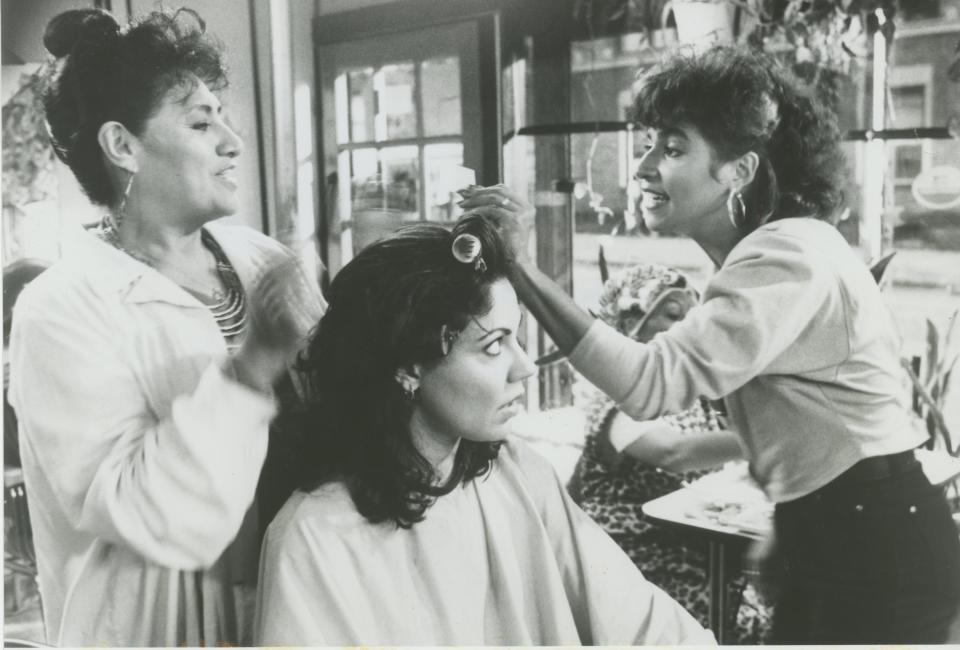
LP: It’s a challenge that is welcomed. In fact, I put it up there for myself, “I want to try this, and then I want to try that, and let me try this other thing.” The thing is that I studied art and film at the San Francisco Art Institute. There was a group of independent filmmakers in the city that were very challenging to the staid way of telling stories. So, it was part of the atmosphere that we were living in. The thing that I find very exciting, even now that I’m an old lady, I still think, “what if I make it like this and like that” because it’s so challenging and so wonderful. I find it very satisfying to try to have beauty be a part of protest.
DEADLINE: Missing Young Woman, released in 2001, explores the unsolved sexual assault and murder of hundreds of women in Juárez, Mexico. Has anything changed over the last 22 years since you made the film, or are young women still being abducted, raped and killed there and in surrounding areas?
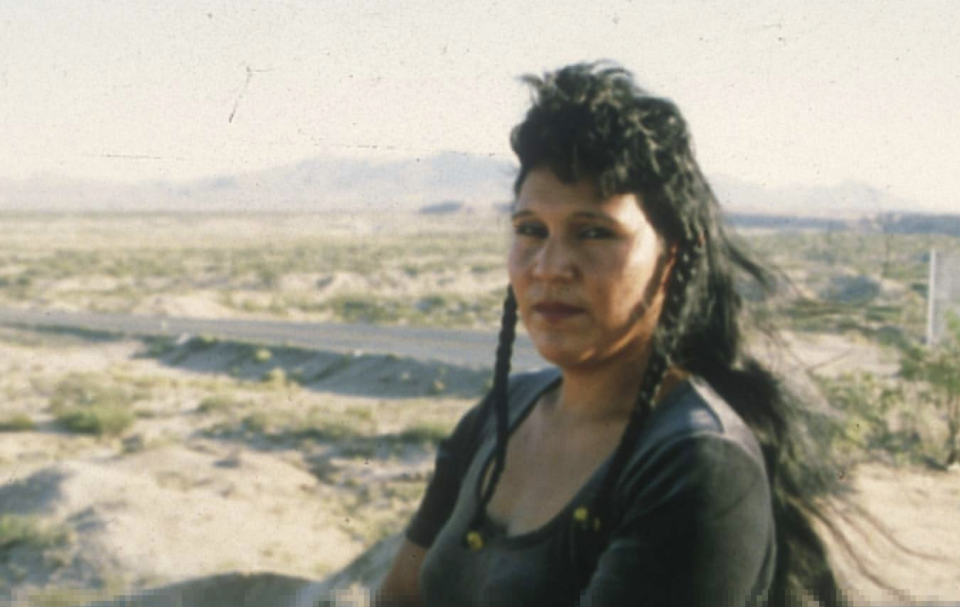
LP: I don’t believe there’s a resolution. I think what happened is that people became aware that it wasn’t just happening in Juárez, but it was happening all over Mexico. And so, the protest grew instead of diminishing and resolving that problem. Everybody kind of woke up and said, “Oh my God, women are disappearing from my town.” It became a very big cause, and people were very, very aware when it happened. And women, of course, organized and tried to do something about it, and they continue to do it to this day. But I also believe that that has been happening certainly probably before the conquest of the Spaniards in Mexico.
DEADLINE: I noticed a thematic commonality in both Missing Young Woman and Corpus: A Home Video for Selena — the aspect of power, control, and corruption. And it’s also present in Las Madres and The Devil Never Sleeps. Is this something you are passionate about underlining as an activist filmmaker – the ugliness of a politically corroded system that controls our freedom of expression?
LP: Absolutely. I think that that’s been one of my interests. They [women] seem to be the least protected of the citizens – aside from children – the mistreatment of women. I think that we have to become very, very aware of that so that we can stop it. And that’s part of my mission… I have a variety of missions. I live in the United States, I experienced racism in a very ugly way. I don’t like that, it’s awful. So, I want to do something about it. I feel that cinema is a great tool. It’s a wonderful tool because it can be served as almost anything – as a documentary, as a feature. I’m passionate about art. I like making films that kind of break barriers, that express things that haven’t been expressed.
DEADLINE: What process of filmmaking do you most enjoy?
LP: I think I like it all. I like dreaming up the film, working on the film – to make it come out the way I dreamt it up. I love editing, of course. It’s hard to travel with the films all over the place and present them, but it’s been a wonderful life for me. It really has, because I feel that I can make a difference. It makes me feel really well.
DEADLINE: What film are you currently working on?
LP: I wanted to work on storytelling. I wanted to work on people telling each other stories of what happened to us. I mean, before we had cinema before we had literature, we would tell each other our stories. This is my project that I’m doing. It’ll be the last project because I don’t have the stamina of a young person anymore. I have a friend, and his name is Guillermo Gómez-Peña, and he’s a performance artist. We live in San Francisco, and we were friends. So sometimes we get together, and we talk to each other about back home — Mexico. I feel that we have certain stories that carry us through our lives that help us, and it’s based on that. The film is not entirely planned out yet, but [it’s] about storytelling, and how we carry all that experience into this other place that is alien in a way, and how it helped us survive as artists.
Best of Deadline
Sign up for Deadline's Newsletter. For the latest news, follow us on Facebook, Twitter, and Instagram.

